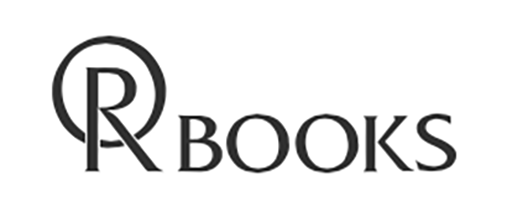Kategorie: FAILURE OF GETTING A JOB
When you fail to find a job, it is hard not to feel like you have been denied your entire personality.
But that doesn't mean you are a person who doesn't deserve to live.
The path to success is such that when one door closes, another door opens.
God has prepared a path for you to succeed in life.
From the teachings of Master Ryuho Okawa, I have selected prescriptions for the mind for success in employment.
Do not take the test as an absolute

There are many who enter large companies that most people would be envious of, but more than half of them do not even make it to the position of section chief. However, there are also those who, unable to get into those companies, enter second or third-rate companies, but rise through the ranks to become executives or presidents.
There are many people who have become presidents of so-called "big companies" who say, "When I was looking for a job, I took some exam and failed. Some of them join a rival company of the company they were rejected from and become the president there.
This means that the human resources section rejected people who could become presidents of other companies or rival companies in the entrance examination, but then hires people who cannot become section chiefs and end up as low-grade employees in those companies.
There are many such things in the world, so do not think of a company's interview test as a divine judgment.
From "The Way to Happiness" by Ryuho Okawa
Give Your Best in Your Current Circumstances
Your current employer might not have been the top choice on your list when you were searching for a job. Perhaps there were paths in other places you were hoping to take, and you had other employers' names on your list, but you were hired by your current one after your first and second choices turned you down. So, you might currently be working at the third, or even the fifth employer on your list. Or perhaps your current employer wasn't on your list at all, but you accepted a position with them because one happened to open up. There are different possible scenarios.
But in the world, only a few people succeed at getting hired by the employer of their choice. These people didn't necessarily apply for the job fully believing that it was their life's destiny to work at that organization. Many applied to their top-choice employers because of these employers' strong reputation, good name recognition, or high-paying positions, and not necessarily because they were born with a calling to work at those places. Perhaps they chose their employers because their friends were aiming to get into those companies or they were places that received high popularity ratings among people. For this type of person, whether to make their current job their forever job might not be such a serious question.

If this is the case with you, your guardian spirits, guiding spirits, or high spirits of heaven might not have a constructive reason to support you. Heavenly beings won't have a reason to strongly support people who have chosen their employers based purely on their worldly reputation.
These days, it's important for many people working for corporate employers to believe that they were led to their companies by a destined connection and that they received a divine calling to work there whether it was their first choice or not. With a mindset that says, “I came here by a destined connection and was divinely called to be here,” they'll rapidly progress to higher positions, succeed in those positions, and become capable of working in the way they had hoped to work. As a result, they'll live their lives in dedication to their divine calling.
But what would happen if there were workers at your company—your colleagues, subordinates, and superiors—who continually complained, saying, “I shouldn't have taken this job. I must have made some kind of mistake”? For example, if a new employee has been saying since day one on the job, “I don't know why I decided to work here,” everyone working around them would probably say, “You're ruining our work environment, so please leave as soon as you can.” Or, for example, what would happen if a senior staff member said to a newly hired and enthusiastic employee, “You shouldn't have come to such a terrible place to work. You probably made the wrong decision to take this job”? It would be sure to dampen the new employee's spirits.
Employees who complain like this have a harmful influence on the company. This is true even when they're entry-level employees, but the degree of harm increases the higher up you go. If such a person were in the position of a department manager, his or her influence could wreak great havoc on the company.
So, don't always concern yourself with other people's perspectives and opinions. Instead, it's essential to think to yourself, “Since I'm working in this company that I'm connected to by destiny, I will discover and accomplish my divine calling in this place.” Even if you don't have a calling in this company, new doors won't open if you don't work earnestly, but a new path will open if you do. So, to begin with, it's essential to try to accomplish your calling in this place where you are currently working.
From "The Laws of Happiness" by Ryuho Okawa
Not everyone's path that is envied is a good one
In this world, there are a few elites that have jobs that everyone is jealous of. However, it does not mean that these people are free from worries. Although they may appear to be walking a path that is far from setbacks, if you were to peer into their minds, you would find that they are suffering from their own sense of failure.
From "The Laws of Courage" by Ryuho Okawa
In failure lies the cause of success, and in sorrow the seed of joy

Difficulties and problems, failures and setbacks are usually seen as negative. But it is not entirely right to see them in this way. In failure, you find also the seeds of success; in sorrow, the seeds of joy. I really think it is important to look at these apparent setbacks in a different way.
People who simplistically see the world from a perspective of duality-in other words, people who judge situations to be good or bad would probably say, “If God exists, why is the world so full of distress and sorrow?” They wonder why there is so much misery and hardship in people’s lives, why they have to experience the pain of facing death, of separation from loved ones, or of poverty.
Life is full of pain and sorrow, but these do not exist for their own sake. In fact, what appears to be pain or sorrow is often an expression of God’s love in disguise. In Buddhism, sufferings in life are sometimes described as the expedient measures to lead people to enlightenment. Trials are like a whetstone that polishes our souls, and through our trials an encounter with God awaits.
If everything went smoothly and you had no serious problems in your life, if as a child, you grew up healthy, did well at school, graduated from a reasonably good university, found a respectable job, married happily and enjoyed a good family life, then grew old and eventually died peacefully, you would probably have little chance of experiencing the ultimate encounter. However, in reality, at some point in life, everybody experiences failure of some kind, and everybody experiences sleepless nights. You probably lost your appetite after a painful experience, or spent sleepless nights in pain or in a state of anxiety.
The question, then, is how you see life’s difficulties, how you assess them, and how you react to them. Faced with difficulty or pain, anxiety or suffering, do you see these as a manifestation of evil? Do you curse the world, heaven, and other people, or can you perceive in difficulties the prompting to become a better person? Can you see them as an expression of the love of God? These are two different ways of seeing the same circumstances.
From "The Origin of Happiness" by Ryuho Okawa
-
Book, The Truth about Spiritual Phenomena: Life’s Q&A with El Cantare, Ryuho Okawa, English
Normaler Preis ₩26,503 KRWNormaler PreisGrundpreis / pro₩26,503 KRWVerkaufspreis ₩26,503 KRW -
Book, The Laws of Courage -Unleash Your True Potential to Open a Path for the Future, Ryuho Okawa, Thai
Normaler Preis ₩23,550 KRWNormaler PreisGrundpreis / pro -
Book, Words for Work, Ryuho Okawa, Japanese
Normaler Preis ₩23,550 KRWNormaler PreisGrundpreis / pro -
Book, The Laws of Happiness : Love, Wisdom, Self-Reflection and Progress, Ryuho Okawa,German
Normaler Preis ₩25,027 KRWNormaler PreisGrundpreis / pro -

Book, The Laws of Happiness : Love, Wisdom, Self-Reflection and Progress, Ryuho Okawa, Korean
Normaler Preis ₩9,000 KRWNormaler PreisGrundpreis / pro -
Book, The Laws of Happiness : Love, Wisdom, Self-Reflection and Progress, Ryuho Okawa, Thai
Normaler Preis ₩25,027 KRWNormaler PreisGrundpreis / pro -

The Laws of Courage : Unleash Your True Potential to Open a Path for the Future, Ryuho Okawa, English
Normaler Preis ₩22,074 KRWNormaler PreisGrundpreis / pro -
Book, The Laws of Courage : Unleash Your True Potential to Open a Path for the Future, Ryuho Okawa, Portuguese
Normaler Preis ₩23,550 KRWNormaler PreisGrundpreis / pro -
Book, The Laws of Courage -Unleash Your True Potential to Open a Path for the Future, Ryuho Okawa, Chinese Simplified
Normaler Preis ₩23,550 KRWNormaler PreisGrundpreis / pro -
Book, ЗАКОНЫ СЧАСТЬЯ, The Laws of Happiness : Love, Wisdom, Self-Reflection and Progress, Ryuho Okawa, Russian
Normaler Preis ₩25,027 KRWNormaler PreisGrundpreis / pro -

Book, The Laws of Happiness : Love, Wisdom, Self-Reflection and Progress, Ryuho Okawa, Spanish
Normaler Preis ₩25,027 KRWNormaler PreisGrundpreis / pro -
Book, The Laws of Happiness : Love, Wisdom, Self-Reflection and Progress, Ryuho Okawa, Portuguese
Normaler Preis ₩23,550 KRWNormaler PreisGrundpreis / pro -
Book, The Laws of Happiness : Love, Wisdom, Self-Reflection and Progress, Ryuho Okawa, Nepali
Normaler Preis ₩20,597 KRWNormaler PreisGrundpreis / pro -
Book, The Laws of Happiness : Love, Wisdom, Self-Reflection and Progress, Ryuho Okawa, Hindi
Normaler Preis ₩20,597 KRWNormaler PreisGrundpreis / pro -
Book, The Laws of Happiness : Love, Wisdom, Self-Reflection and Progress, Ryuho Okawa, English
Normaler Preis ₩25,027 KRWNormaler PreisGrundpreis / pro -
Book, The Laws of Happiness : Love, Wisdom, Self-Reflection and Progress, Ryuho Okawa, Chinese Traditional
Normaler Preis ₩25,027 KRWNormaler PreisGrundpreis / pro
















